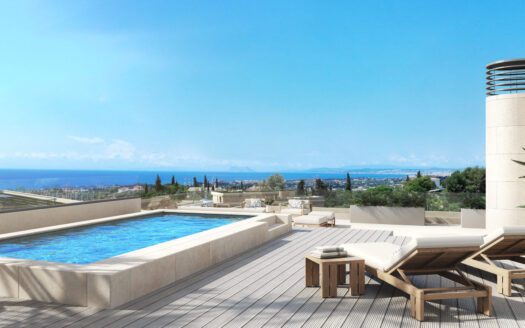Buying Property in Spain as a Canadian: Your 2024 Guide
Spain, with its vibrant culture, sunny climate, and rich history, stands as a prime destination for Canadian real estate investors and those looking to relocate. At Alta Moderna, we’ve crafted a comprehensive guide to help you navigate the process of buying property in Spain as a Canadian, covering the benefits, considerations, and key steps involved.
Table of Contents
- What Makes Spain an Attractive Destination?
- 2024 Real Estate Market Trends in Spain
- Top Regions for Buying Property in Spain
- Can Canadians Purchase Property in Spain?
- Step-by-Step Guide to Buying Property in Spain
- How to Secure a Mortgage in Spain
- Common Pitfalls to Avoid
- Download the Complete Guide for Free
What Makes Spain an Attractive Destination?
Spain, a member of the European Union, is the fourth largest country in Europe and offers an incredible variety of landscapes, including the mainland, the Balearic Islands in the Mediterranean, the Canary Islands in the Atlantic, and the autonomous cities of Ceuta and Melilla in Northern Africa. With a population of over 48 million people as of 2024, Spain’s cultural and geographic diversity make it a compelling destination for both investors and those seeking to explore new horizons.

Why Invest in Spain?
Spain’s allure goes beyond its sunny climate and lifestyle; it’s also a hotbed for real estate investment. The country features more than 4,900 kilometers of coastline and enjoys over 2,500 hours of sunlight annually. In 2023, Spain hit a new milestone by welcoming 85.1 million international tourists, marking an 18.2% increase in tourism revenue compared to pre-pandemic levels in 2019. Tourism, a key driver of Spain’s economy, contributes 16% to the GDP, further solidifying its status as an attractive investment opportunity.
2024 Real Estate Market Trends in Spain
The Spanish property market is showing signs of stabilization in 2024, particularly in urban and coastal regions, which are experiencing increased demand. Investors are gravitating towards energy-efficient and sustainable properties, responding to growing environmental awareness and potential savings on utility costs. This trend makes such properties highly desirable for both buyers and renters.
Average Property Costs in Spain (2024):
| City / Area | Cost in EUR per m² | Cost in CAD per m² |
|---|---|---|
| Madrid | €2,965 | CAD $4,264 |
| Barcelona | €3,380 | CAD $4,857 |
| Marbella (Costa del Sol) | €3,070 | CAD $4,409 |
| Balearic Islands | €3,000 | CAD $4,309 |
| Canary Islands | €1,900 | CAD $2,728 |
These figures provide a snapshot of current market conditions, though prices can vary based on location, property type, and market trends. To keep up with the latest trends and price changes, visit our dedicated page on Alta Moderna.

Top Regions for Buying Property in Spain
Spain offers a wide array of regions, each with its own unique appeal and lifestyle. Here are some of the most popular areas for property investment:
- Costa del Sol: Known for its stunning beaches, world-class golf courses, and luxurious lifestyle, the Costa del Sol is a favorite among expats and retirees. Properties range from beachfront apartments to high-end villas.
- Costa Blanca: Famous for its white sandy beaches and mild climate, Costa Blanca attracts many Northern European residents. It offers a variety of properties, from charming townhouses in traditional villages to modern villas with sea views.
- Barcelona: As one of Spain’s most cosmopolitan cities, Barcelona provides a vibrant urban lifestyle rich in culture, architecture, and gastronomy. Property options range from historic apartments in the Gothic Quarter to contemporary homes in new developments.
- Madrid: The capital city offers a dynamic living environment with a mix of cultural attractions, extensive parks, and business opportunities. Housing options include city-center apartments, suburban homes, and luxurious estates.
- Balearic Islands: Comprising Mallorca, Menorca, Ibiza, and Formentera, these islands are renowned for their stunning landscapes and vibrant nightlife. Properties vary from traditional fincas to exclusive waterfront villas.
- Canary Islands: With a unique blend of European and African cultures and a year-round pleasant climate, the Canary Islands are ideal for those who enjoy outdoor living. Available properties include beachfront condos, hillside villas, and rural homes.
Can Canadians Purchase Property in Spain?
Yes, Canadians can easily purchase property in Spain. The Spanish property market is open to international investors, and there are no legal restrictions specific to non-EU citizens regarding property ownership. However, the process involves several steps, including obtaining a foreigner identification number (NIE), opening a Spanish bank account, and navigating Spain’s legal system. Working with a reputable real estate agent and a lawyer specializing in Spanish property law is strongly recommended to ensure a smooth transaction.
The Golden Visa Program:
The Golden Visa program is particularly attractive to non-EU citizens, including Canadians, looking to purchase property in Spain. By investing a minimum of €500,000 in real estate, you can obtain a residence permit for yourself and your family. This visa not only grants you the right to live in Spain but also allows for visa-free travel within the Schengen Zone, making it an excellent option for frequent travelers and those considering long-term residency.
Step-by-Step Guide to Buying Property in Spain
- Research and Choose a Location: Start by identifying the region or city that best suits your lifestyle and investment goals. Consider factors such as climate, proximity to amenities, and potential for property value appreciation.
- Get a Foreigners Identification Number (NIE): The NIE is essential for any financial transactions in Spain, including buying property. You can apply for an NIE at a Spanish consulate in Canada or in Spain.
- Open a Spanish Bank Account: This account will be used to manage your property purchase, including transferring funds, paying taxes, and setting up utilities.
- Hire a Real Estate Agent and Lawyer: A local real estate agent can help you find properties that meet your criteria, while a lawyer ensures that the transaction is legally sound, protecting your interests throughout the process.
- Property Viewing and Due Diligence: Visit potential properties and conduct thorough due diligence, including checking the property’s legal status, ensuring there are no outstanding debts, and verifying ownership.
- Make an Offer and Sign the Preliminary Contract (Contrato de Arras): Once you’ve found the right property, you’ll make an offer and sign a preliminary contract, which typically requires a deposit of 10% of the purchase price.
- Secure Financing (if needed): If you require a mortgage, now is the time to finalize it. Spanish banks offer mortgages to non-residents, though terms and conditions may differ from those offered to residents.
- Complete the Purchase: The final step is signing the deed of sale (Escritura de Compraventa) in the presence of a notary. After this, you’ll pay the remaining balance, taxes, and fees, and the property will be officially registered in your name.
- Register the Property: Ensure that the property is registered in your name at the local land registry office. This step is crucial to formalize your ownership.
How to Secure a Mortgage in Spain
Canadian buyers can apply for a mortgage in Spain, though it’s important to note that banks may require a higher down payment (often 30-40% of the property’s value) compared to residents. The mortgage approval process will consider your creditworthiness, income, and the property’s value. It’s advisable to get pre-approved for a mortgage to streamline your property search and buying process.
Common Pitfalls to Avoid
- Skipping Legal Advice: Always hire a lawyer who specializes in Spanish real estate to navigate local laws and protect your interests.
- Ignoring Additional Costs: Be mindful of taxes, notary fees, legal fees, and property registration costs, which can add up to 10-15% of the purchase price.
- Overlooking Due Diligence: Ensure there are no legal issues with the property, such as outstanding debts, disputed ownership, or unregistered renovations.
- Underestimating the Language Barrier: While many professionals in the real estate sector speak English, important documents and negotiations may still be conducted in Spanish. Consider hiring a translator if necessary.
Expert Guidance for Canadian Investors
Navigating the Spanish property market can be complex, especially when considering factors like real estate investment strategies, financial planning, and understanding tax and legal implications. At Alta Moderna, we offer personalized advice tailored to Canadian buyers through our extensive network of trusted affiliates. Whether you’re seeking the best investment opportunities or need guidance on the legal and financial aspects of purchasing property in Spain, our team is here to assist you every step of the way. Contact us today to learn more about how we can help you make the most of your real estate investment in Spain.






